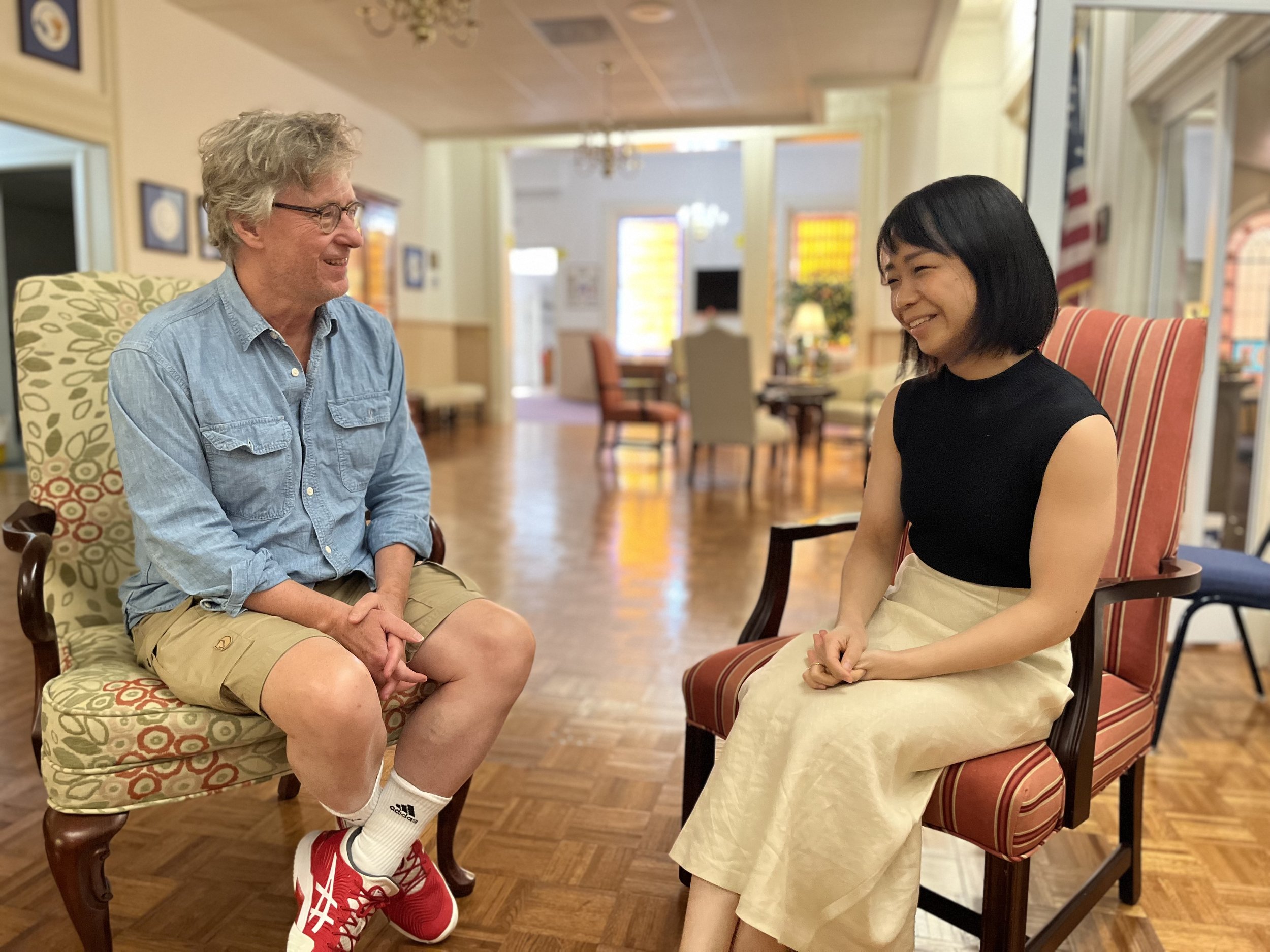Interview with Anders Hillborg
This past summer, I had the privilege of working with the Swedish composer Anders Hillborg at the Stanton Music Festival where I performed his string quartet. I was immediately taken by the simplicity and the vocal nature of his music that is pleasant to the ears but also leaves you with a sense of mystery and depth. In conversation he is chill and fun, but also profound. I immediately asked him for an interview as I was curious to hear what he had to say about life, the world, and music. This was one of my favorite conversations, and I'm very excited to share this with you all!
What do you turn to, when you're going through a difficult time in your life?
That's a very big question. I try to find balance in this life of being a composer. It took me many years to realize that it's a very lonely job. And it took me many years to realize that that's very hard. It's hard to be lonely and work. You have no one to turn to, no one to discuss your problems with. And that's why I try to do social things. This might sound very banal, but I play a lot of tennis. That gives me two things. I get to keep fit and I get to meet people. We do things. We don't talk about music. So I try to balance things by doing things like that.
The production brings together classical music with rituals inspired by Japanese traditions such as folding origami cranes. Did you grow up with, or currently practice, any rituals (anything you do on a regular basis) that help you connect to yourself and/or to others, besides music?
When I get up in the morning and I'm supposed to compose, I am confronted by horror vacui — the fright of the void, the empty paper, the empty space, the emptiness. You haven't started the piece yet and you’re like, “What the fuck.” That's so scary. To deal with that, I have this ritual: I always play a game of Go before I start composing. I do that every time, excessively. And it makes me focus. It's an amazing game.
Go precedes chess. And one parallel to art is that Go is built up on a few very simple rules. Anyone can learn them. But these rules generate an enormous complexity. And to me that's the definition of good art. The simplicity that renders an enormous complexity, like Bach. That's one aspect of the game. The other thing with Go is that you fight in different places on the board. You have to be brave enough not to win the fight up there, because if you do that you will surely lose down here. So you will have to deal with potentials all the time. That is something with composing also, I find. I don't know how to end the piece, I have to deal with that fright and work on other places and don't force myself to make the ending. That's why Go is very interesting.
Last question: if you could ask Messiaen one question, what would it be?
I would ask him, “In the Turangalîla Symphony, were you influenced by George Gershwin?” I would love to hear his answer to that. I would like to ask him that because I have a friend in England, a conductor by the name of John Carewe. He's 90, but he worked with Messiaen and he conducted the first performance of the Turangalîla in England, I think. I once said to him that there must be influence by Gershwin and he said, "Oh, if you were to say that to Messiaen he would be very angry, he would not acknowledge this!" I think that's interesting, because some of us won't acknowledge that sometimes we get our inspiration from places that is not kosher, so to speak.

